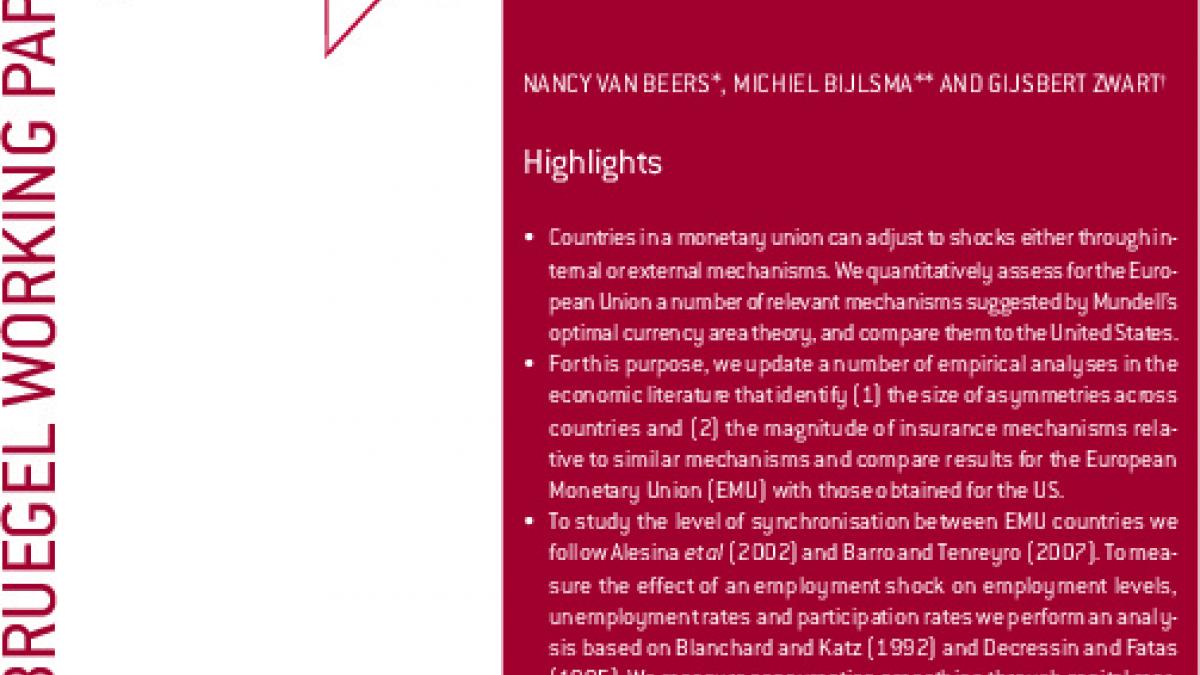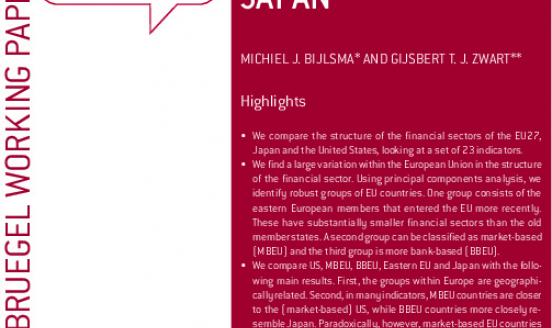Cross-country insurance mechanisms in currency unions
Countries in a monetary union can adjust to shocks either through internal or external mechanisms. We quantitatively assess for the European Union&nbs

Countries in a monetary union can adjust to shocks either through internal or external mechanisms. We quantitatively assess for the European Union a number of relevant mechanisms suggested by Mundell’s optimal currency area theory, and compare them to the United States.
For this purpose, we update a number of empirical analyses in the economic literature that identify (1) the size of asymmetries across countries and (2) the magnitude of insurance mechanisms relative to similar mechanisms and compare results for the European Monetary Union (EMU) with those obtained for the US.
To study the level of synchronization between EMU countries we follow Alesina et al. (2002) and Barro and Tenreyro (2007). To measure the effect of an employment shock on employment levels, unemployment rates and participation rates we perform an analysis based on Blanchard and Katz (1992) and Decressin and Fatas (1995). We measure consumption smoothing through capital markets, fiscal transfers and savings, using the approach by Asdrubali et al. (1996) and Afonso and Furceri (2007). To analyze risk sharing through a common safety net for banks we perform a rudimentary simulation analysis.
